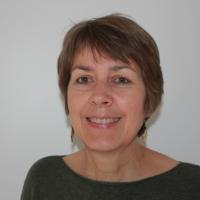Course Overview
In order to be able to recognize the uniqueness of each pupil and each group of learners and to be able to react in adequate ways, teachers need to train their sense of perception as well as apply some tools which will enable them to conduct their lessons in meaningful ways, to support the pupils’ growth and to recognize learning processes when they take place. In a time in which the field of education is more and more dominated by a notion of testing, we want to deliberately point out other ways of accompanying the pupils’ learning processes. We invite you to get to know various and creative methods which can help us to identify learning processes when they occur. Our focus is not so much on formative assessment with respect to examens. We understand assessment as a necessary tool for teachers who want to understand and support their pupils’ learning processes. Moreover we see a dialogue between pupils and teachers as a way to help pupils to understand their learning through getting feedback about the next meaningful steps on their individual paths into life. Starting off with some general aspects of learning, we will then examplify more theoretical aspects through examples from classes seven to twelve.
Moreover, we will also offer some tools for teacher learning which we invite you to get to know and enjoy during the course.
Course Content
- Welcome and overview of week 2
- Journaling
- Practicing collegial conversation – a conversation frame
- Taking a closer look at eduaction and learning
- Voices: The function of school today
- A question of learning culture
- Journaling – functions of education
- Journaling – learning
- The 7 stages in a learning process
- Voices: Learning is change
- Voices: Cyclical learning
- Assignment for the week
- Sources: pedagogical discourse
- Welcome and overview of week 3
- Voices: Teacher learning
- Journaling
- Practitioner research as learning tool
- Journaling – Diversity in groups pf learners
- Voices: Differentiated teaching
- Ways of perception
- Learning styles
- Journaling
- Community and individual
- Voices: Interest, motivation and diversity
- Voices: It’s a matter of questions
- The potential that lies in questions and tasks
- Journaling
- Analysis of classroom situations
- Voices: Portfolio – idea and potential
- The beauty of divergent learning
- Journaling: Approaching diversity
- Assignment for the week
- Community circle meeting
- Welcome and overview of week 4
- Voices: Experience with assessment
- Voices: Assessment for learning
- Waldorf pedagogy and assessment
- Journaling
- Voices: Assessment and criteria in portfolio work
- Overview of assessment forms
- Know thy impact
- Examples of formative assessment in the classroom
- Clear criteria are a basis of meaningful assessment
- Developing a feedback culture
- Assignment for the fourth week
- Community circle meeting
- Welcome and overview of week 5
- Opening to change
- The relevance of artistic activities …
- The art of education
- Pedagogy as art, craft and science
- Voices: The power of creativity
- Journaling
- Aiming for transformation
- Recalling, explaining and forming concepts (with examples)
- Practicing, practicing and more practicing
- Examples of students’ work: presentations
- Developing independent learning skills
- Examples of students’ work
- Assignment for week five
- Community circle meeting
- Welcome and overview of week 6
- Time for reflection
- Reflection needs practice – examples of reflection projects for pupils
- More examples of pupils’ reflections from the classroom
- Pupils’ feedback on a learning experiment
- Journaling
- Assignment for the course: My individual research project
- Community circle meeting
Instructors
Ulrike Sievers was born in the North of Germany. She studied English and Biology and has taught both of these subjects in Waldorf schools with great enthusiasm for over 20 years. Her main interest is in how school education can create a space in which children and young people can grow up in a healthy way, develop a love for nature and the living world and become interested in other people, their cultures and their languages. She has also contributed nationally and internationally to teacher education and offers courses for students at the Waldorf seminar in Hamburg and Stuttgart.


